Iconic Ads: Kenneth Cole – Imelda Marcos

This advertisement for Kenneth Cole sparked the beginning of the legendary advertising agency Kirshenbaum + Bond.
1986 was the year in question. The former dictator Ferdinand Marcos and his wife, Imelda, were making headlines in the Philippines for their glamorous lifestyle despite the fact that they lived in a nation that was plagued by severe poverty.
A news article revealed that Imelda Marcos, known for her love of shopping, owned thousands upon thousands of pairs of shoes.
A few days later, James Patterson, a creative director, made his way through the halls of the illustrious JWT. Then Patterson went to each office in the creative department and stunned the art directors and copywriters working, thereby displaying a page from The New York Times in front of them.
It was a full-page advertisement for shoes by Kenneth Cole. The advertisement just had two short phrases that were typed in black and white. There was no picture or an image of shoes. In terms of production costs, it was the most cost-effective form of advertisement that you could run in The New York Times. Actually, the only thing that would be cheaper than running this advertisement would be publishing a blank page.
“Imelda Marcos bought 2,700 pairs of shoes. She could’ve at least had the courtesy to buy a pair of ours. Kenneth Cole. “
“This is the kind of work we should be doing here!” Patterson yelled before marching down the corridor to the next office, and then to the next office after that. “Why can’t we do this kind of work here?” “Why aren’t you doing ads like this?”
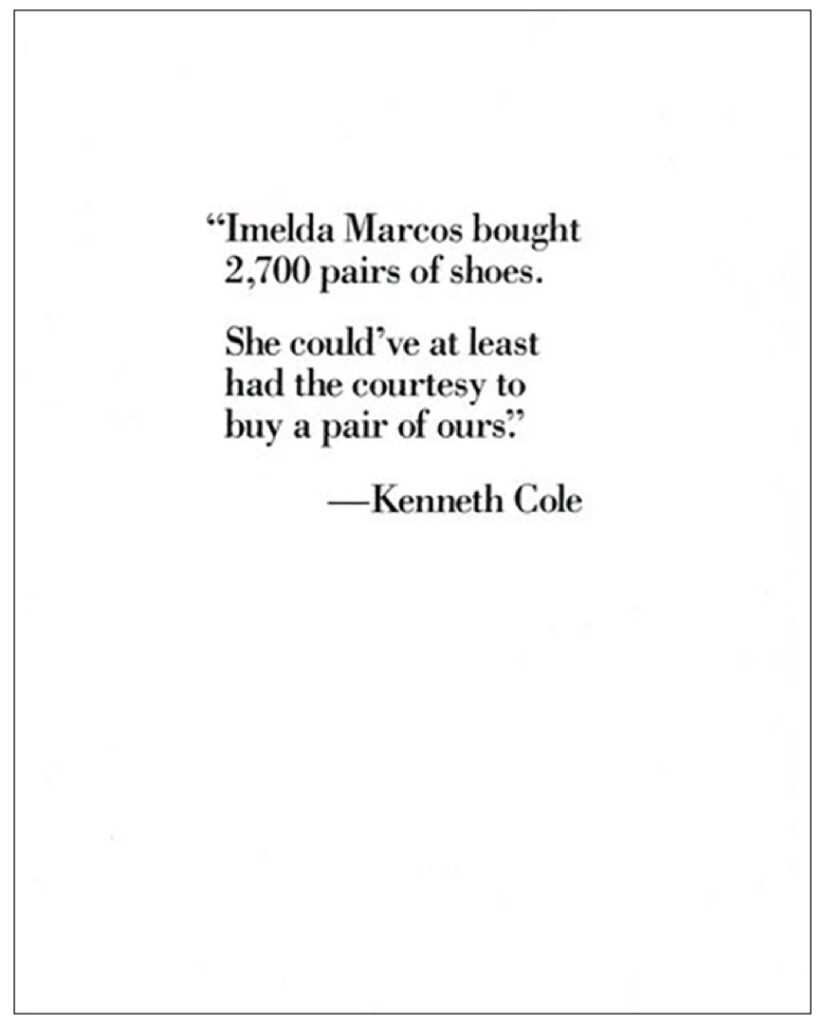
Patterson then entered the office of the copywriter, Richard Kirshenbaum, and leaned in closer. He bellowed, “Why can’t you do this kind of work?”
Kirshenbaum chuckled as he looked at the advertisement and then at Patterson. For good measure, Kirshenbaum’s response was, “There’s no way we can do that kind of work here,” This place sucks. Kenneth Cole is my freelance client! “
The well-known advertising agency, Kirshenbaum & Bond, got its start as a direct result of this event. K+B, which later became KBS, was the company that came up with many of the ideas, strategies, and plans that are still used in social, digital, and traditional forms of advertising and marketing today.
The print campaign that Kirshenbaum + Bond created for Kenneth Cole became a phenomenon in New York. In the 1990s, everyone in Manhattan, including customers and those working in various industries, watched and waited for the next advertisement.
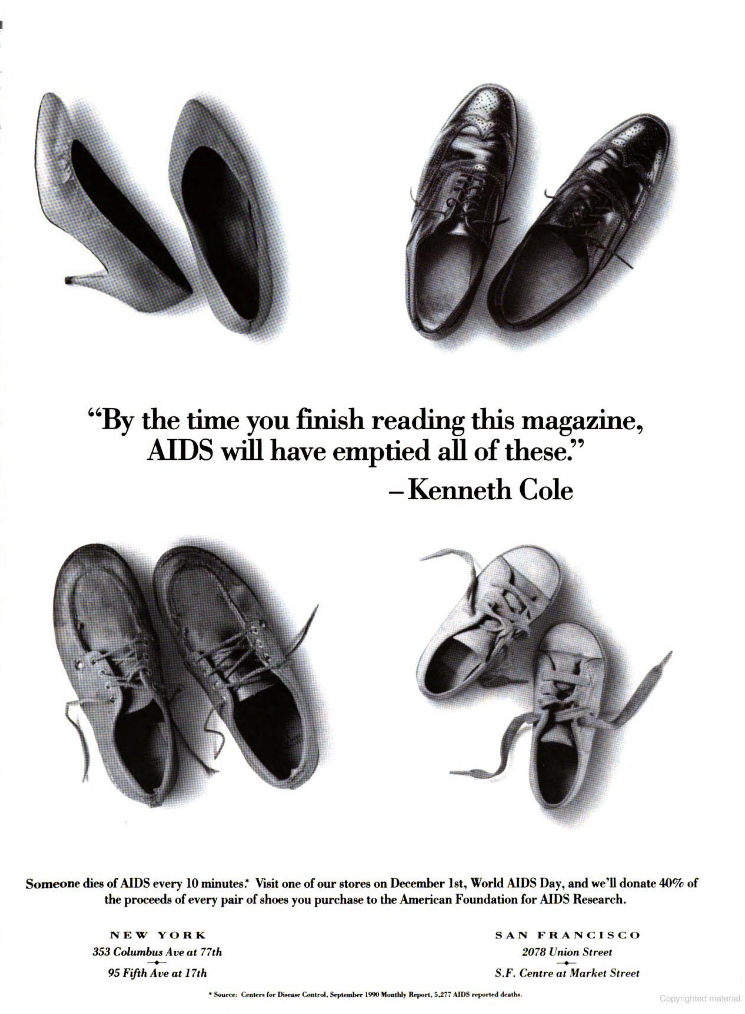
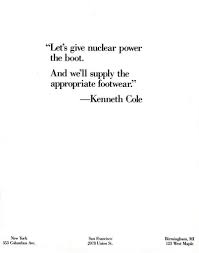
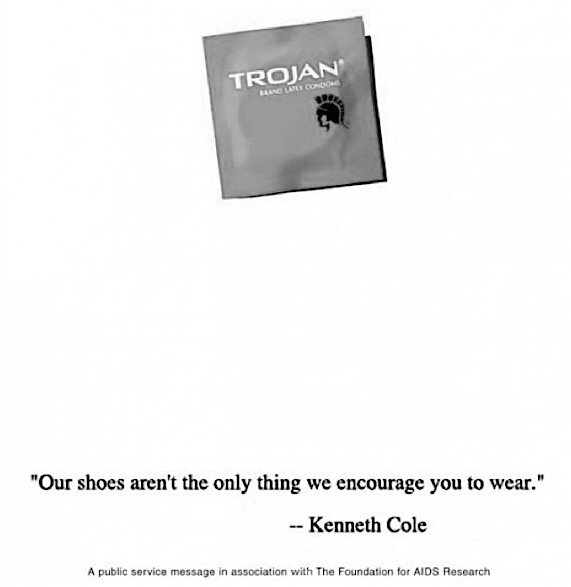
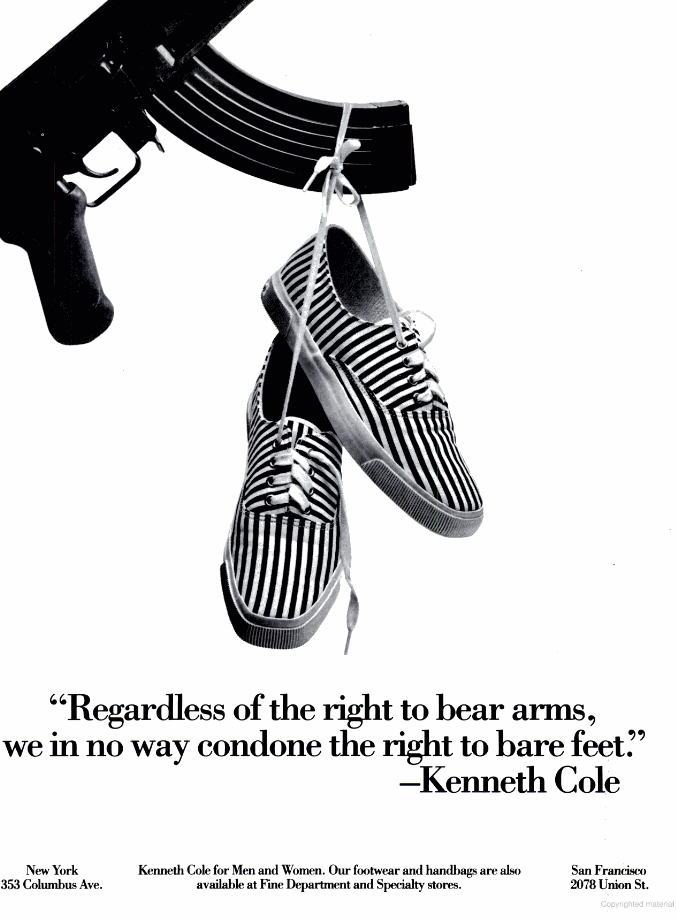
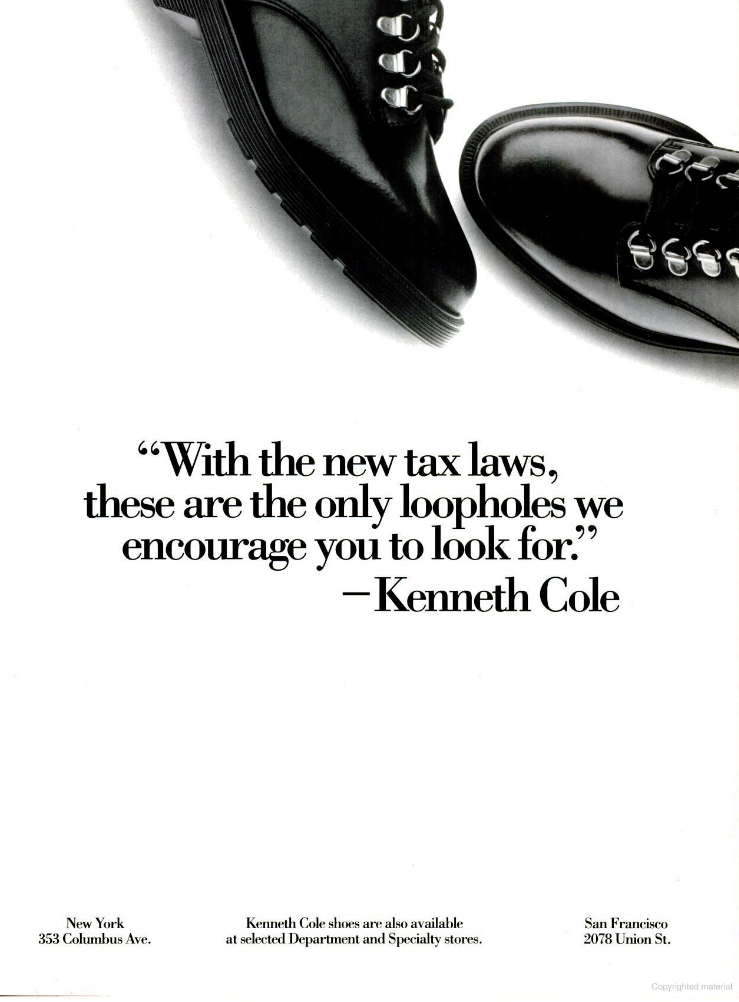
There was no plan for the media. They would wait for the events to take place and then ask Kenneth for his view.
The advertisements for Kenneth Cole shoes were culturally relevant, deliberately cause-ridden, and commendably not as much about the footwear as they were about the values of the people who wished to wear Kenneth Cole shoes. These advertisements were filled with puns, double entendres, etc.
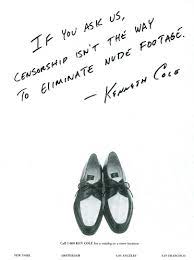
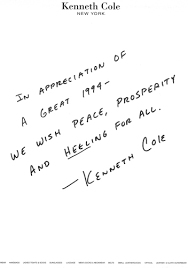
A significant contribution that Kenneth Cole’s advertising made was to give a voice to contemporary themes such as AIDS, homelessness, and political conflict. In the episode when Lorena Bobbit removes her husband’s penis, there is commercial advertising the procedure. At a time when many conservatives chose to ignore the AIDS pandemic, Kenneth Cole’s ads were very clear that they supported research and funding.
This was significant back when K+B’s Kenneth Cole advertisements did not blatantly shout “pay attention” in a “purpose-driven” manner. The advertisements were humorous, endearing, audacious, and tone-aware and they took up the whole front page of the newspaper in the American city with the most cultural variety and the most exciting nightlife. The advertisements for Kenneth Cole acted as activist impulses to assist in the discussion of societal concerns. There is no question that Kenneth Cole was a pioneer in the field of purpose-driven marketing.
Not only did the Kenneth Cole campaign make effective use of the media, but it also served as a megaphone for discussions about social issues, current events, human rights, values, and social justice. And they were completely transparent to the outside world. In the fashion-forward environment of New York City, their value came not from the shoes themselves but from the people who wore them.
To address the issue of whether or not purpose-driven brands achieve their business goals: During the course of the campaign, sales of Kenneth Cole rose to more than 500 million dollars, having previously stood at only 2 million.
Reference
https://www.brandingstrategyinsider.com/how-one-small-agency-changed-advertising/



